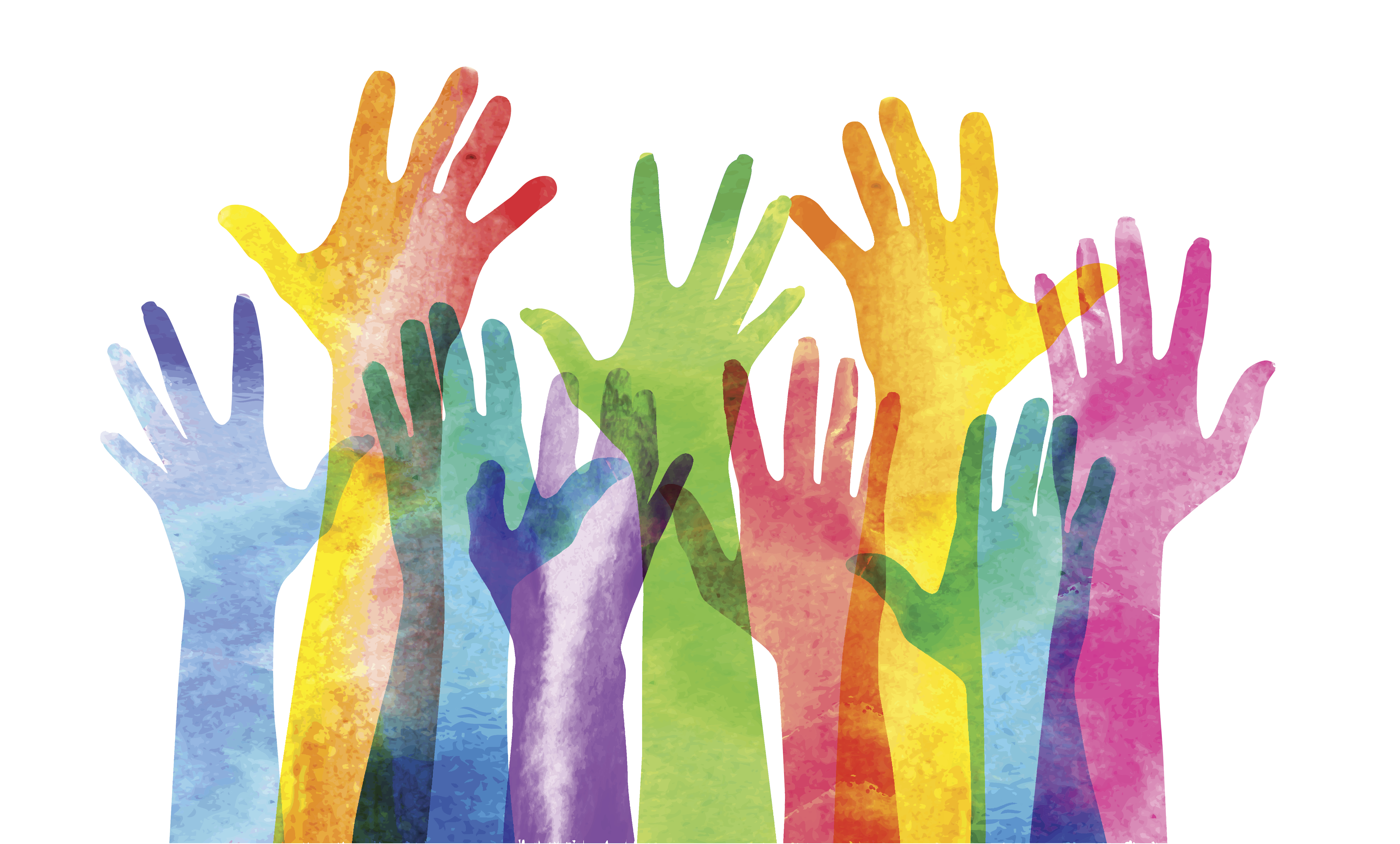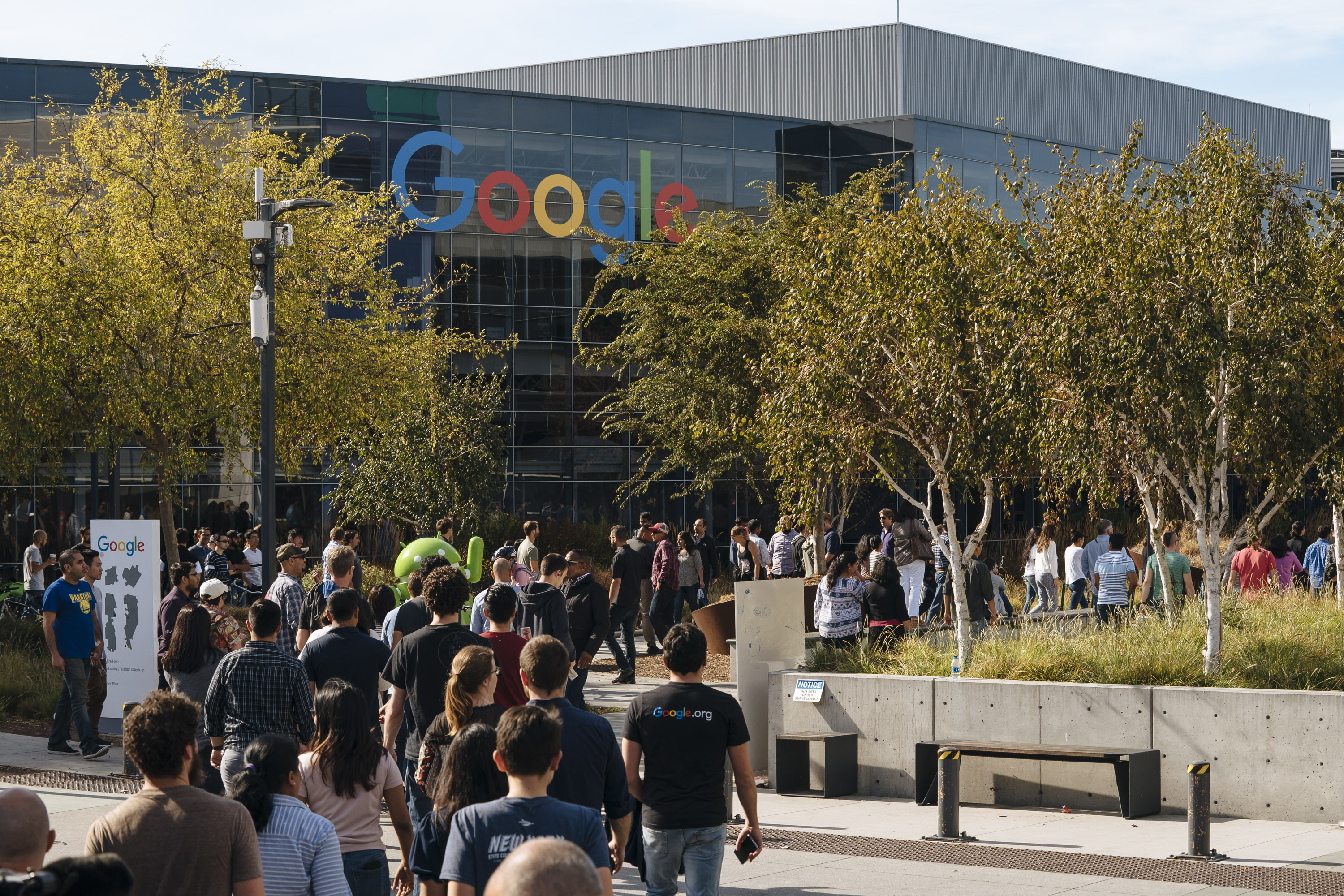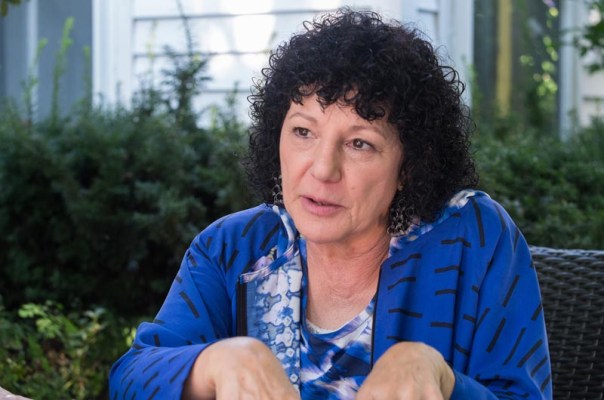It was more than 10 years ago when Freada Kapor Klein published her book “Giving Notice” about hidden biases. Fast forward to today, and it’s sometimes hard to say that anything has changed.
Kapor Klein, a long-time advocate for diversity, equity and inclusion in the tech industry, is the co-founding partner at Kapor Capital and co-founder of Project Include. TechCrunch had the privilege of chatting with her about diversity and inclusion over the last several years.
“I would characterize where we are now is a leap forward over the last ten years and several steps sideways and a few steps backwards,” Kapor Klein says. “And so I think it’s a very noisy time to be looking at D&I. Because any point you can make in a positive direction, there’s a countervailing negative. And similarly, any time you can raise a criticism, somebody can point to something hopeful. So, we’re still in the middle of it — I hope — although I worry about diversity fatigue, which people are talking about and writing about these days.”
What’s clear is that a comprehensive approach is needed, and in order for that to be successful, there needs to be unequivocal commitment from the top.
We also discuss the rebound effect for harassers, why heads don’t roll when companies don’t fulfill their diversity goals and where there’s hope in the push for more diversity, inclusion and equity in tech.

Editor’s Note: This interview has been edited for length and clarity.
MRD: I wanted to chat with you specifically, just because you’ve been working on this issue for more than a decade at this point. And I figured you would have some good perspective to add. So far, I’ve chatted with a handful of people and my plan is to try to see what the common themes and then go from there.
Freada Kapor Klein: Are there some, some emerging hypotheses or some emerging consensus or too early to tell?
MRD: So far, I’ve had some conversations that have centered around the heads of diversity and inclusion. And while the idea of them is great, often times, they’re not truly empowered within these companies. Looking at Google as an example, and some of the turnover they’ve seen throughout that role.
Also, I’m looking at how one of the changes has been that it’s become more acceptable to be vocal about this issue and speak out against it. But that doesn’t always translate into real work and actions, and progress being made.
And then also, of course, there are more worker-led initiatives, also using Google as an example. But then what may be the next step actually needs to be like, okay, well, you’re speaking out, you’re walking out, but now maybe it’s actually a matter of leaving these companies because the workers are the most important part of these companies. But it’s not always an option for some people who don’t come from wealth and really need these jobs. Those are kind of the high-level takeaways so far.
Freada Kapor Klein: That’s interesting, but maybe there is a call to action for those who are — I once long ago heard the term post economic. And so maybe there is a call to action for those who are going to be the beneficiaries of the 2019 IPOs and who are in a position to vote with their feet.
MRD: Yeah, that’s a good point.
Freada Kapor Klein: So, great. Where would you like to start?
MRD: Looking back over the last ten years of your work in Silicon Valley across diversity and inclusion, what gives you hope that we’re moving in the right direction? Or, do you think we’re moving in the right direction?
Freada Kapor Klein: I would characterize where we are now is a leap forward over the last ten years and several steps sideways and a few steps backwards. And so I think it’s a very noisy time to be looking at D&I. Because any point you can make in a positive direction, there’s a countervailing negative. And similarly, any time you can raise a criticism, somebody can point to something hopeful. So, we’re still in the middle of it — I hope — although I worry about diversity fatigue, which people are talking about and writing about these days.
But I do remain hopeful for very specific reasons. And one of those is quite simply changing demographics in the US. The march of demographics is unstoppable. And we know the K 12 school-age population in the US, which has been majority kids of color for five years now. And so that is the future workforce. Changing demographics is certainly one cause for hope. And critical mass, which has been a concept around a long time in social science, has some real legitimacy.

Image via Getty Images / Softulka
And we’ve all felt it. We’ve all felt the fear of speaking up if we’re an only in the room. And we all understand that when there are enough of us, whoever the us might be, that it gives much more freedom to speak up.
So, in different social sciences, could put that critical mass number somewhere, somewhere between 20 and 30%. But once you get to critical mass, whether it’s on the team in a division, but especially in a company or in an ecosystem, then you very rapidly shift the culture. So I’m hoping that we are on this long, sometimes hopeful, sometimes hopeless march. But it is a steady march toward critical mass.
I am also incredibly hopeful because of my work with our SMASH coalition. When you talk about working on these issues for a while, this is now the 16th year of this program. We will be on eight campuses this summer, and we are continuing to grow and expand. And as you know, this is a residential program for underrepresented high school students of color, from low incomes, underrepresented backgrounds. They come all three summers of high school and they live on a college campus. And that is five weeks every summer. And we have plenty of data now about changing the trajectory of their lives, of our SMASH scholars who are overwhelmingly the first of their family to go to college, persist with STEM majors at twice the rate of the national average, which includes white and Asian kids whose parents and grandparents, you know, have PhDs. So it’s a remarkable transformation, and I am very hopeful about who those scholars are.
It takes a while. The kids started as first-year scholars at age 14, so it takes eight years to get them through high school and then college. But I think that as the program grows and each year goes by, there’s a larger number in the workforce. And we often hear from people things about, ‘well, the program is relatively small.’ But if you look at the total number of black and brown engineers at Facebook, or at LinkedIn or Twitter, we have enough SMASH scholars to more than double, or in some cases, triple those numbers who are alumni. So if our numbers are too small for the big companies, then they better look inside, because their numbers are significantly smaller. So SMASH gives me great hope.
The other thing is Kapor Capital. So we’re going to be releasing our financial returns. And our impact returns from seven full years: 2011 through 2017 of 100 percent impact investing.
And some of those years are also when we had the founders commitment in place, only writing a check to a CEO who committed to building a diverse team and inclusive culture. So Kapor Capital gives me huge hope. Because literally every week, we get pitched by somebody whose lived experience is generating an idea for an amazing business that closes gaps of access or opportunity or outcome. And that makes me incredibly hopeful that we’re going to be in that way changing the startup ecosystem, which will have a big impact on the VC ecosystem and will change who gets hired.
MRD: It was back in 2016 that Kapor Capital started requiring any new portfolios to invest in D&I. And I think at the time, of the existing startups in your portfolio, 52 or something had opted in. Have more of the startups, like pre-2016 opted into that, or what have you found?
Freada Kapor Klein: Yes, yes. It’s more than eight. But we also have three full years of investing in you know, ten to fifteen companies a year, where it’s been a condition of writing a check. The balance has shifted remarkably. So all of those things give me a lot of hope. And as you mentioned, employee activism and in some cases, CEO activism has also given me hope.
MRD: Which CEOs have you seen acting as activists?
Freada Kapor Klein: Well, if you talk about who’s in our portfolio. Jeff Lawson. We were seed stage in Twilio and Jeff has spoken out on a number of things: on tech’s role in income inequality, and the problem of homelessness in San Francisco, and believing that it is the CEOs job to step up. I think Twilio.org has done some remarkably creative things and a different model of philanthropy and corporate social responsibility.

Image via Getty Images / Olga Kashurina
MRD: I’m still curious about the Founders’ Commitment. At what point do you talk to founders about the commitment and how do you ensure they follow through?
Freada Kapor Klein: We ask them to report on their progress with the Founders’ Commitment just like they report on their business. So we’ve had various workshops. We’re actually now in the midst of hiring a director of talent for the portfolio, which is to help the portfolio as a whole develop relationships with schools, recruiters and various sources for hiring underrepresented talent. We want to help our founders implement the Founders’ Commitment.
MRD: What happens if these founders don’t follow through with the commitment?
Freada Kapor Klein: Well, we don’t participate in any follow-on funding. We cease to be actively involved with them. So we’re not going to make introductions to other investors and we’re not going to participate, despite our pro rata.
MRD: So, it was about a year ago when the Kapor Center for Social Impact released the Leaky Tech Pipeline report, which was great. Well, great in the sense that it was very informative, but obviously not an overall good thing in what it showed. I remember you had said in a statement that we’ve basically had no progress. And just earlier in this conversation, you said that there have been some steps forward, some step sideways, and some steps back. Could you elaborate on where you’ve seen the industry make steps forward? And what were the steps taken sideways and backwards?
Freada Kapor Klein: Let me start and say the Leaky Tech Pipeline documents all those places where talent felt falls out, even starting in preschool and where bias rears its ugly head. And I think one of the things that the Leaky Pipeline does is it points out the positive and the negative simultaneously. The steps forward and the steps backward.
The step forward is the recognition that there is systemic bias that is backed up by research, and that we have to address issues of diversity and inclusion with a comprehensive approach. That’s a big plus to have that enter into our dialogue.
The negative part is that it sometimes can feel overwhelming to look at something — as you pointed out — like the leaky pipeline to look at how overwhelming it is that bias creeps into so many different places in preschool, in K-12, in the employment process. And so it can be daunting. But I think it explains — having that framework helps us understand why one-off initiatives fail.
So whether it is somebody advocating a decency pledge, or whether it’s somebody saying, ‘post your policy here,’ or whether it’s somebody saying, ‘hire one more white woman for your firm,’ it explains like each of those initiatives fails to move the needle.
You’ve got systemic bias. And until you address systemic bias with a comprehensive approach, you’re only going to have short-term, incremental and fleeting progress.
MRD: What does that comprehensive approach look like?
Freada Kapor Klein: Well, first of all, what we know from the Tech Leavers study is that many of the common D&I initiatives that many tech companies put in place don’t make a significant difference. And here I’m talking about a statistically significant difference, either in reducing the incidence of bias or unfairness nor do many of those make a difference in increasing retention. We see the revolving door, especially for African Americans and Latinx in tech, and people scratch their heads. We keep trying the same thing. We keep taking the spigot approach and forgetting to put the stopper in the drain.
So we’re never gonna make any progress adding talent from diverse backgrounds if we don’t fix the inclusion and culture issue.

Image via Getty Images / nadia_bormotova
MRD: Do you think that unconscious bias training and ally training and manager training are the solutions or what do you think are the ways to really improve inclusion inside of these tech companies?
Freada Kapor Klein: So the Tech Leavers study tested for five different D&I initiatives, and unconscious bias training was one of them. Three of the five initiatives made no significant difference on their own, as I mentioned, either in reducing incidents of bias, or increasing retention of underrepresented talent. And the three that made no difference as standalone efforts were unconscious bias training, having a head of D&I or putting in ERGs.
There were two that did make a difference as standalone initiatives, and here I’m talking again, a statistically significant difference, both in reducing unfairness and increasing retention. And those two were first setting specific diversity goals and the second was giving a differential bonus for employee referrals of diverse talent. And what’s fascinating to me, is that those two initiatives require CEO support but also very sophisticated senior management because both of those initiatives encounter backlash.
And for those, for either one of those to be effective, there has to be an enlightened senior management team that understands the nuance and can push back when a CTO or a VP of engineering or anyone else says, ‘Wait a second, you know that’s ‘reverse discrimination; or that’s unfair,’ or however they push that. So to be able to talk about what it means to create a level playing field requires a CEO who has some degree of sophistication and understands the nuance of the issue.
So I thought it was fascinating that the data turned out that way. Basically what the data are saying is that no matter how many bells and whistles you put into place, there is no substitute for an unequivocal commitment from the top.
MRD: With that in mind, do you think that instead of hiring a head of D&I, that the CEO should be the head of D&I?
Freada Kapor Klein: Well, at least have a head of D&I who reports to the CEO. I do think the CEO can’t do everything. But whoever is around that table needs to have a diversity lens when any business issue is being talked about. When D&I reports to HR, people ops or a COO, what happens is that voice is not in the room when the most senior and strategic business discussions are being held.
MRD: Going back to the Tech Leavers study, it was unconscious bias training, having a head of D&I and ERGs are not effective as one-off initiatives. But together, do they lead to change?

Image via Getty Images / JakeOlimb
Freada Kapor Klein: Well, yes. You’re on to something very important. There is increasingly serious research pointing out that unconscious bias training, especially as a one-off, is not only ineffective, it can be counterproductive. There is in some way, ironically, that talking about your company as meritocracy has the same impact as unconscious bias training.
So what happens is that people say, ‘Ok, I checked that box. Our company is a meritocracy so I don’t have to think about my decision.’ ‘Ok, I went to one hour of unconscious bias training, so that must undo the 29 years I’ve lived on this planet getting biased input.’
I think we have to look at not just what’s ineffective but what actually either promotes backlash or is indeed counterproductive. But those five initiatives together to make a difference.
It’s more than a decade ago that I wrote a book called Giving Notice that talked about hidden bias. And interestingly enough, in 2007, I talked about a comprehensive approach having five components and it overlaps with what we tested for in the Tech Leavers study but it’s also a little different.
The first is policies, practices and principles. And so it does matter what your policies, practices and principles say and don’t say. What is the floor that they guarantee to everyone about fairness? What do they say about what’s appropriate and inappropriate behavior in the workplace, in work sponsored events, in work-related activities, like conferences, and meetups and even parties?
The second is informal and formal problem-solving mechanisms. And this is the one that just about everybody flunks. And many people flunk it because they go to their corporate law firms and that’s who writes their policy. And the job of a management-side employment lawyer is to remove as much risk as possible, regardless of the consequences.
So you end up with complaint channels that say, ‘if you feel that somebody subjected you to any kind of bias or harassment, you must report it.’ So you’ve got mandatory reporting, which ironically if you think about it makes the person who’s just been subjected to bias or harassment the person who violates the policy if they don’t report it.
So you’ve got, you’ve got mandatory reporting, and you have to go either to HR or people ops or to your manager, both of whom are paid for by the company, and are not neutral by a long shot.
So when you talk about an informal, confidential, or anonymous problem-solving mechanism, employment Lawyers freak out. They say, oh no, that might constitute notice to the firm blah, blah, blah.
But if you collect the data about how few complaints of racial bias, any kind of harassment, racial, sexual, homophobic, religious — if you look at how often those things happen and how underreported they all are and how they lead to high rates of turnover and they lead to reputational harm of the firm, it makes zero business sense to not be able to capture, to create an anonymous or confidential channel where those issues can be captured early and acted on before they escalate and blow up.
I mean, you mentioned Leslie Miley. Leslie Miley’s report to Twitter. You mentioned Erica. Erica’s Medium post on her experience at Google, Susan Fowler’s blog post on Uber. If Susan Fowler, Leslie Miley or Erica Joy Baker had had a safe problem-solving mechanism — safe and effective — don’t you think they would have used it much earlier than they wrote their blog post?
What I remain completely dumbstruck about is all of these supposed geniuses who are running these companies miss the obvious. If you don’t have a safe place for people to speak up and get their issues resolved fairly, you’re going to find out about it in a Medium post or a lawsuit or both. So don’t talk to me about how diversity matters. They all have the same platitude on their websites and none of them take the most obvious step in creating fair and welcoming workplaces.
The third is customized training for all constituents. So I do think training has a role, but I don’t think off-the-shelf training works for anyone. And I think the role of an ally, the role of the bystander, the role of a manager, the role of a complaint handler, the role of each of those roles are very different. And they need different kinds of help preparing for how to handle issues when they arise.
The fourth thing here in the comprehensive approach is sort of sensing or monitoring or survey mechanisms. And lots of companies do post surveys, lots of them do climate surveys, lots of them do, you know, sentiment analysis, engagement surveys — they’re all called different things. But if those are done with rigorous methodology and they look at employee experiences by demographics, that’s a very important part of understanding is your culture welcoming to everyone or not. And it’s not just the obvious things.
Many surveys ask whether you think that, you know, people of color are treated fairly here. And the underrepresented people of color tend to disagree and the white people tend to agree. That’s a predictable answer and doesn’t help you.
What you want to be looking for is whether or not people got their last performance review on time and whether they felt like it was fair, whether or not they feel that they understand what it takes to be promoted and whether they’re on track for promotion. Whether or not their professional colleagues solicit their opinion on a regular basis.
Then you cut those things by demographic data. You want to know how many underrepresented engineers of color versus white engineers versus Asian engineers feel that their review was fair. That’s when you get to the real data, not a general everybody votes on diversity.
And then the last place that, you know, I’ve mentioned a couple of times now: unequivocal, consistent commitment from the top. You really need all five of those.

Image via Getty Images / alengo
MRD: So you wrote about this over ten years ago.
Freada Kapor Klein: Yes, I did. Yeah. I do. I keep tweaking it as new situations arise, but you know it’s not rocket science. It is not as hard as some of the products these companies are building.
MRD: And you mentioned earlier that something that’s a bit concerning is people talking about diversity fatigue? It doesn’t seem like you have that or have experienced that, which is great for everyone.
Freada Kapor Klein: On random days I do absolutely have diversity fatigue. I have diversity doldrums like everyone else. And I hear things. I hear things every week that I, that just breaks my heart that I can’t believe these things are still going on. But I do see the big picture and the long view. As Martin Luther King said, I mean, I see the long arc bending towards justice. But I don’t see it every single day.
But I do you know, I think I think what’s so fascinating, speaking of very recent events. I, I actually put tech ecosystem writ large in the same boat as Joe Biden, which is what we have is this focus on intent. ‘I’m a good person, I didn’t mean it,’ And what we have is a growing chorus saying your intent doesn’t matter as much as the impact you’ve had. And I think that’s a product of years and years and years of work on the parts of thousands of people to say, our voices, our experiences matter.
And that’s what impact is. You think you’re a good person, well here’s how that felt.
MRD: Absolutely. Just speaking of other recent events, using Google as an example, the paying off of executives after sexual harassment allegations, the walkout and now retaliation, are there lessons to be learned?
Freada Kapor Klein: I think the lessons are what happens when you don’t have a comprehensive approach. A couple of years ago, I saw that Google spent hundreds of millions of dollars on D&I and yet they still gave someone who was accused of harassment, a $90 million severance, and they have 20,000 employees walk out. And those employees, many of those employees who led the organizing are now, as you said, are now speaking out about retaliation. So the $289 million didn’t go. And that was just in two years, obviously, was not effectively spent. Which leads to another point. Nobody’s head ever roll when they miss their D&I numbers.
You miss your sales numbers, you miss your ship date, you miss lots of other things and heads roll. The fact that no one’s head ever rolls over D&I numbers being missed or slipping reinforces to me the notion that despite all the platitudes, focus on diversity, equity and inclusion is not really seen as a business issue.

Photo by Mason Trinca/Getty Images
MRD: Yeah, and that’s even despite all of the studies that have come out proving the business case for diversity. So what do you think it will take to like to get these executives on board? Or do you think they will ever get on board?
Freada Kapor Klein: I don’t know. My hope is with startups because I think it is so difficult to turn the Titanics of the world around. So my hope is with, as we talked about at the beginning, my hope is with startups, my hope is with SMASH scholars. It’s with a new generation of leaders who see things differently.
I’ll tell you that there’s sort of one other dynamic I’ve noticed recently that’s problematic, but also another, another bright spot. And I was reminded of this as you were talking about the various events at Google. I think what we’ve seen, despite the hashtag Me Too in Hollywood, and then its reverberations in venture capital, and in tech, we have seen a remarkable rebound effect for harassers. Harassers land on their feet much more easily than the people who accuse them. And that’s a big problem.
So you’ve got the SoFi CEO had no trouble raising more money, the Binary Capital folks, Dave McClure, Steve Jurvetson Shervin Pishevar, Parker Conrad of Zenefits, Chris Sacca. You can name I think, everybody I just named, you can name white guy after white guy. And they do their whatever penance, they write their little apologetic note, they may have to leave their firm or their role as CEO. But somewhere six to 18 months later, they’re on to their next thing and they have no trouble raising money, being accepted. That is not true of the people who speak up. And until that changes, we’re going to still have barriers to really fixing things. So that’s a problem that that needs to be addressed.
And related to that, as you talked about before, we sure saw CEO step up on PIPA and SOPA and H1-B visas. I haven’t seen any CEOs banding together to change employment law.
You’ve seen some of them step forward to get rid of mandatory arbitration, which is amazing. You saw the General Counsel of Uber, remarkably, step forward for a global sexual assault, classification and transparency to disclose sexual assault of the drivers and riders. And those are I think, positive outcomes of the #MeToo movement, but again, there are many counterpoints with the rebound effect.
MRD: Yeah, and that’s something that I’ve just been wondering, and I don’t have a clear answer on with this rebound effect. It definitely doesn’t feel good to see all of these people who’ve been accused of harassment just bounce back so quickly. But I guess what I’m wondering is, should they never be allowed back in the tech industry? Like, should they just not get funding? Are we wanting to see these people just never return? Or what is your ideal outcome for these people?
Freada Kapor Klein: Well, I do believe that people can change. But I don’t think people change in six to 18 months. I am unaware that any terms were written into any of their new contracts, which I would insist on. I won’t say the specifics, although I’m tempted to. We were introduced to a company, actually by one of the Project Include women. A couple of friends of her’s were starting a really interesting company, Two guys, white guy and an Asian guy. And as we were looking into the company, Ulili was the lead because she leads our people ops practice. We discovered the guy leading the round — and they had already signed a term sheet — the guy leading the round had been accused of harassment and sexual harassment in the past. Sexual harassment, white guy. So I said I want to talk to him. So we talked to him, Mitch Ulili and I all got on the phone with him and he basically said, ‘Yes, I did harass. And I’ll try not to do it again.’
MRD: Jesus, he’ll try not to do it again?
Freada Kapor Klein: Right. And we said, ‘You’re not going to invest, are you willing to sign something that says if a credible complaint comes forward against you, you are out, you don’t waste a lot of our time and tie up a lot of time and money at the company, you just step away. And we’ll buy you out at a fair price.
Megan, I cannot tell you how long it took for lawyers going back and forth, and back and forth, and back and forth, and it wasn’t our lawyers. It was his lawyers and it was the CEO, the founders’ lawyers. They had already signed the term sheet. They said they agreed with us. It was either their unwillingness or their inability to get this done. And we finally said, ‘No, we’re not investing.’
So I think what it’s going to take is real consequences. So we are looking at, in our term sheets, putting something in about gap closing impact, because we’ve had so many of our founders, especially founders of color, when they go on to raise their next round, get beaten up about impact and told that you can make much more money if you drop it.
So we just discussed it last week, and we’re going to come up with some term sheet language, where it’s going to be much harder for the investors to beat up on the entrepreneurs. So I think the big picture of what it’s going to take is for there to be a new way to look at companies and founders and investors, which means looking at the impact of the business and the impact of the behavior of the senior leadership and the investors, and to have some consequences

Image via Getty Images / erhui1979
MRD: Yeah, it seems like that’s generally lacking across all of these initiatives. Where is the real accountability? And where are the real consequences? Why aren’t heads rolling for diversity initiatives as they would be if it was about profitability?
Freada Kapor Klein: Exactly. So, what does an LP think when they put money into a fund run by somebody who got run out of their last firm for harassment. Do they think they’re not gonna harass again? You asked should they be run out forever? No, but there ought to be some real accountability. If this happens again, there are much more serious and much more immediate consequences.
MRD: I don’t want to take up too much more of your time. And I’m really grateful that you were able to set aside an hour for this. But before we get off the phone, at this point, what do you think is the most urgent task at hand or just anything else that jumps out?
Freada Kapor Klein:
I think there has to be a recognition that this is hard work, that it’s rewarding work. But also, I think we need to call out what is really just lip service, or whitewashing, quite literally. Right now, everybody has a diversity statement. Everybody has a D&i function. And, and most of it is surface deep, has no power, has no comprehensive approach, has no accountability. And that, I think, is what needs to change. This can’t continue to just be a check-the-box effort. There’s got to be a lot more right. But with that, I do think if companies had much more effective ways for people to raise issues, companies would actually understand how often various forms of unfairness take place. And how demoralizing and demotivating they are.
MRD: Absolutely. Well, thank you so much for taking the time to chat. I really appreciate it.
Freada Kapor Klein: Of course, I know it’s going to make a big difference, so thank you.
MRD: I hope so! Yeah, that’s the goal.
